Chapter Sixty-Eight
Bedford, Virginia – September 11, 2001
“Three can keep a secret, if two of them are dead.” Benjamin Franklin (1706 – 1790)
J.P. Kilroy pulled into the National D-Day Memorial at ten minutes to eight in the morning. The site was vastly different than what he remembered from his last and only visit over three years before. He drove around the empty circular parking lot that circumscribed the memorial and parked near an opening. He noticed how new and clean everything was as he walked to the ersatz shoreline and sat on one of the many smooth, shiny marble benches facing the water. There were only a few people walking about. His dad offered to give him and Frank West a personal tour of the memorial. As he waited, he reflected on the intervening years since his last visit to Bedford.
As far as J.P. was concerned, the last three years flew by in a flash. After finding out the man who raised him was not his biological father, he was convinced he discovered what the old men were hiding. Coupled with the last three years of a tumultuous presidency, a contested national Presidential election that went all the way to the Supreme Court and his complicated relationship with Cynthia Powers, J.P. had neither the time nor desire to chase down the identity of his real father. His mother had ample opportunity to consort with other men so he resigned himself to the probability he may never know for sure. J.P. also acknowledged that even his dad might not know, although it was likely he knew it was someone other than himself. He resisted the temptation to drag himself through those emotions once again and focused on his surroundings.
J.P. remembered the President of the United States just dedicated the D-Day Memorial two months earlier on the sixth of June. He could see it was laid out in a huge circle with a wide road surrounding it. The massive arch was the dominant feature as one approached through the main entrance. The word OVERLORD was inscribed across the top. Three huge white stripes on the arch represented the invasion stripes marked on every Allied plane that flew on D-Day. Under the arch the visitors would come face-to-face with a dark green statue of an Army Ranger scaling the cliff at Pointe-du-Hoc. His Thompson submachine gun was raised high over his head in a triumphant gesture having successfully scaled the dangerous heights. Looking out beyond the statue, the perspective was looking from atop Pointe-du-Hoc across the sea toward England.
Two inclined ramps, one on each side, led down from the “heights” to the next lower level and a tan colored depiction of a narrow sandy beach. Lying on the half-moon shaped beach were three dark olive drab bronze statues of soldiers. One was lying lifeless. Another was dragging the inert body of a fellow GI inland. The lifelike scene was riveting and compelling.
Looking up from the beach toward the heights, one could see three more Rangers in bronze laboring mightily to gain the summit. Taut ropes, dangling feet and joined hands testified to the strain and struggle to breach the cliff.
Beyond the beach was the water, also shaped in a semi-circle to follow the contour of the beach. There were iron cross-shaped obstacles reaching up from the water representing the gripping danger that lurked where the waves touched the land. Another soldier in the water waded inland, rifle held high overhead. A granite landing craft with a lowered ramp dominated the center but the most striking aspect of the beach display was the simulation of bullets striking the water. At random intervals, sprays would leap out of the water at various points with a soft but definitive cracking sound. Even in the welcoming hills of Virginia, the Stonewallers could not escape the relentless gunfire of the invisible enemy.
Four marble steps led up from the pool to the land and were ringed by a series of low, flat marble benches. In front of the benches was a simple chain separating the steps from the rest of the memorial. To keep the kids out, he thought. Behind the benches was a vast, open circular area paved with large gray marble and granite tiles. This huge area represented the English Channel. The lines on the floor showed the sea-lanes taken by the vast armada of 5,000 ships. Encircling this vast, flat area was a low concrete wall adorned with plaques and flags honoring both individuals and units that participated in D-Day. There were hundreds of them. The plaques on the Necrology Wall listed the names of all Allied servicemen killed in action on D-Day, the only place in the world to do so.
Well beyond the wall, and directly opposite the beach, was a gray stone cupola covering a full-length statue of General Dwight David Eisenhower, the architect and leader of the greatest invasion in history. Between the cupola and the “sea” was a small garden with flowers arranged in shape and color to replicate the shoulder patch of SHAEF. The crescent shaped patch with the flaming sword and rainbow was recognizable to everyone who served in the European Theatre of Operations. The memorial, in all of its exquisite beauty, was framed beneath the backdrop of the majestic Blue Ridge Mountains.
J.P. pulled out a brochure. He followed the descriptions of the various parts of the memorial with his eyes. The vast open space could accommodate hundreds of chairs for an evening concert, speech or lecture. It was a marvelous facility with a clean, well thought out design and captivating bronze statues. The feeling was both eerie and comforting. It was a place blessed with an unexplained energy that elicited a visceral reaction. He felt his own hair standing on the nape of his neck. It was as if the spirits of the fallen had returned to revisit Omaha Beach in Bedford and were all around him.
J.P. attended Harley’s wake and funeral the day before. It was a simple affair. The small quaint funeral home was filled with many friends and neighbors including members of the local American Legion and Veterans of Foreign Wars posts. Surrounding the casket were pictures of Harley as a youth in uniform. His face was young, fresh and proud. He had an expression of pride and fulfillment repeated in other youthful pictures of old veterans lying in funeral homes across the land. Frank had also informed J.P. that Lincoln was too ill to travel and Sky had passed away the year before. The old warriors continued to pass on at an unremitting rate.
J.P. shifted his weight on the hard marble bench. He agreed to meet the man who raised him as a courtesy. After all, the old guy did pay for school and appeared anxious to bring them closer together. But J.P. couldn’t help but put more distance between them as time went on. Life intervened. Besides, he already knew the dark family secret so there was no reason to cultivate a closer relationship. To keep things cordial, J.P. continued to call him “Dad”. They spoke from time to time but J.P. never revealed what he had discovered.
J.P. spotted the two old men at the top of the ramp. They walked slowly down the incline. Frank was wearing an American Legion cap strewn with patches and medals. His dad wore a baseball cap with the Screaming Eagle emblem. Both wore windbreakers. They made their way slowly to the bench and sat, one on each side of him. No one spoke for a long few minutes.
J.P. spoke first. “It’s beautiful,” he nodded toward the water and the statues.
“Harley came here every day,” his dad finally said. “I’m glad he got to see it finished before he passed away.” He breathed the words hard as he tried to choke back tears. He just stared at the beach in a near comatose state. The only noise was the popping sounds of the faux bullet splashes in the water.
Frank turned to J.P. “Bloody Omaha decimated the Stonewallers. The only thing that came close to that for us was Bastogne.”
“The Battle of the Bulge?”
“Oh, yeah. We were surrounded and cut off and the Krauts wanted that town bad. Fortunately we collected a bunch of artillery units who were retreating and along with the Tenth Armored and a few scattered TD units, we gave the Krauts more than they could handle.”
“Until Patton rescued you.” J.P. paused. “I saw the movie.”
Frank glowered at him. “Hollywood!” he growled. “We never agreed that we needed to be rescued!”
J.P. smiled. It was a source of pride among paratroopers that they never needed outside help from anyone. Frank went on. “We would have never surrendered but Bastogne was hell. It got very cold after we arrived and snowed every day. We dug in on the outskirts of town and the Krauts shelled us regularly with flat-trajectory eighty-eights. They would hit the trees and spread shrapnel and wood fragments down on us. The Screaming Eagles lost a lot of guys. Bastogne was our Omaha Beach.”
J.P. looked over to his dad who stood up and began walking to the chain. The old man was transfixed on the bronze relief statue of the Rangers scaling the heights of Pointe-du-Hoc. J.P. looked back at Frank. “Tell me about it.”
“After the retreat from Noville and Foy we gathered our forces in the woods outside of Bastogne called the Bois Jacques and dug in. I sent Lincoln back to the artillery park in the city to serve with a colored artillery outfit. Before I did that I told him about the Five hundred fifty-fifth, an all-colored parachute battalion forming up in the States. I told him I would provide a recommendation. He was happy about that and anxious to sign up. In the days that followed, I wrote both of them up for a commendation but it went nowhere. I guess someone in the chain of command pigeon-holed it.”
“So, that’s how you met Lincoln and how he found out about the Triple Nickels,” J.P. concluded.
Frank nodded. “Good man, Lincoln. They both deserved that Medal.”
“But you were saying about Bastogne?”
“It was cold and it was bloody. The Krauts shelled us every day. We were surrounded and cut off. The weather was too bad for aerial resupply. We ate pancakes every day because we had a huge supply of flour in town. I still can’t eat pancakes.” Frank took a deep breath. “We just stood there and took it, beat back every attack and denied them the city. Some of their armored elements bypassed us and continued to the Meuse River but without the roads through the city the Krauts couldn’t supply them. But they kept attacking and we kept beating them back. We took tremendous casualties. We lost a lot of guys in that town. But we held. We never surrendered.”
Frank paused. He became emotional. J.P. touched his knee with a compassionate tap of his fist. After a moment, Frank continued.
“Jake and Johnny were inseparable as usual. If one was ordered to set up an observation post, the other went too. If one was ordered to mount a patrol, the other volunteered to join the detail. If they were close before Bastogne they were inseparable during and after.”
Frank paused and reflected. “Ike gave Monty command of all the American forces north of the Bulge. That pissed off the American generals to no end. The Eighty-second was part of that force. They hated Monty for making them retreat ‘and tidy up the lines’, as he put it. It was the first time in history that the All-Americans ever gave up ground. Sky told me more than once how they hated Monty for that.”
“You guys seemed to have had a bit of a rivalry going.”
“We did,” Frank smiled. “But it was based on mutual respect. The Eighty-second was every bit as good as the Hundred and first and I’m not ashamed to admit it. Sky knew how I felt. If the Eighty-second had been at Bastogne, they would have done as good a job as we did.
“In any event, the glory of Bastogne fell to us. Around Christmas Eve the skies cleared and the Allied fighter-bombers pounded the Kraut positions and C-47s dropped supplies on the town. Two days later Patton’s force broke through, the Kraut offensive petered out and we went on the attack. By mid January we retook Foy and Noville and were chasing the Krauts back to the Fatherland. Then they shipped us one hundred sixty miles to Alsace to stop Operation Nordwind, a Kraut attack to cover their retreat from the Ardennes. As if we weren’t beat up enough. It took a month but we stopped them there, too.
“Finally, after spending a few weeks in the village of Haguenau on the Moder River, we were sent back to Mourmelon, France to rest and refit. Word was out that the division was to be awarded a Distinguished Unit Citation in the name of the President; the first time in army history the award went to an entire division.”
“That must have been some moment,” J.P. acknowledged.
“The guys were almost more nervous about the ceremony than going into combat. They spent hours spit shining boots, pressing uniforms, oiling rifle stocks, making brass gleam…I’d never seen them so frazzled. Finally, on a Thursday morning, 15 March 1945, Eisenhower himself inspected the ranks and made the award. Big, tough paratroopers were seen in tears. They were crying for their brothers who would never come back and whose bravery and dedication made the last stand at Bastogne a victory.
“By then the War was pretty much over for us, except Jake and Johnny were ordered to accompany Captain Lewis Nixon to observe the jump of the Seventeenth Airborne Division in Operation Varsity. Sky was transferred to the Seventeenth and was short of experienced jumpmasters so he called in some favors and had Jake and Johnny temporarily assigned to him. All three Screaming Eagles made the jump but were pulled out of the combat zone before they could become casualties. That’s how the boys got their fifth combat-jump star.”
A noise behind them attracted their attention. Both men turned to see an oversized golf-cart ferrying a group of visitors to the Necrology Wall. The memorial was waking up and the aging visitors were getting assistance from the attentive volunteer staff.
Frank continued. “The division absorbed replacements and were dispatched to the Ruhr Pocket along the Rhine River where a huge Kraut force was holding out. By April, we had reduced the pocket and were into Germany. That’s when we found the camps…the concentration camps. I’ll never forget how that felt. Jake and Johnny took it hard. Johnny was simply overwhelmed and Jake was madder than hell. He was ready to kill every German in the town. Cooler heads prevailed. By early May, we were in the town of Berchtesgaden where Hitler had his Eagle’s Nest retreat and the high-ranking Nazis had homes. We sat out the end of the War in relative comfort.”
J.P. turned to Frank. “But if they both survived the War, how did Jake die?”
Frank swallowed hard. “I’ve already said too much.”
J.P. sighed. He looked over at the back of the man he called dad and jerked his head up. “I already know the secret, Frank. That man is not my father.”
Frank looked stunned.
“I know he raised me and I’ll call him dad but the DNA test said he’s not my biological father. I may never find out who is, but it’s not him. Apparently, my mother was indiscreet.”
A slow smile crept across Frank’s face. He shook his head. “Things are not always as they appear. What you think you know may not always be correct.”
J.P. was about to question Frank further when he heard a commotion behind them. One of the volunteers in the golf cart was holding a radio to his ear.
“What’s going on?” J.P. asked.
The volunteer shook his head in disbelief. “Someone just crashed a plane into the Pentagon!”

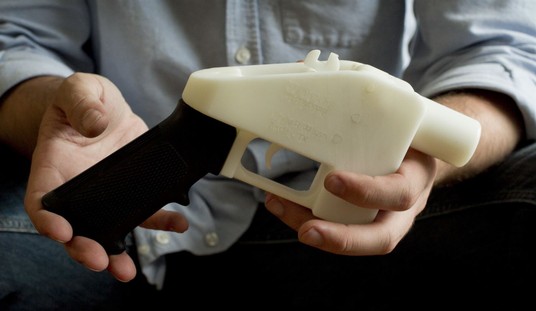

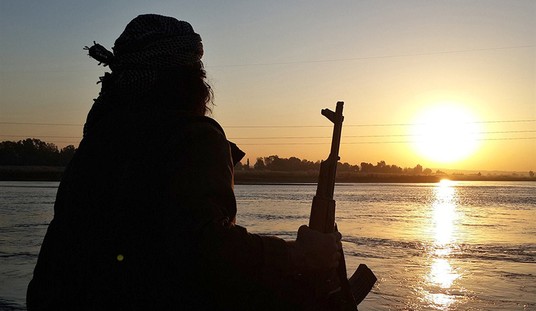
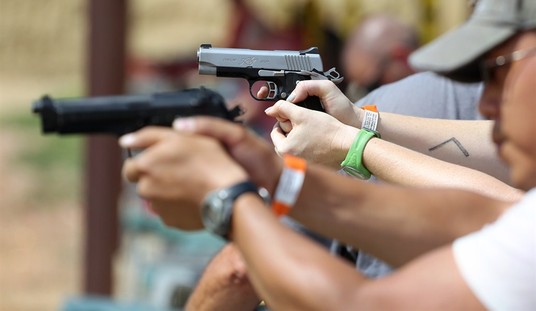
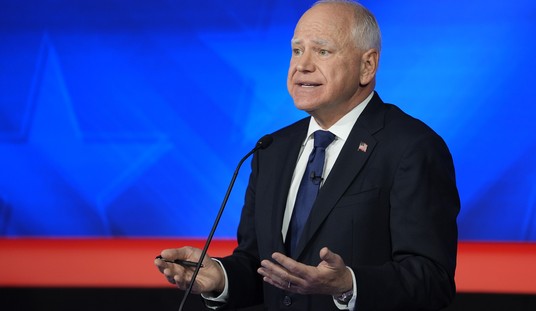
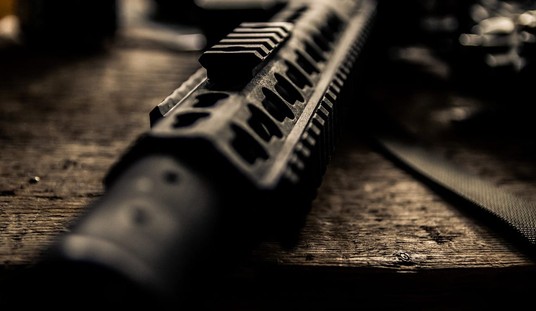
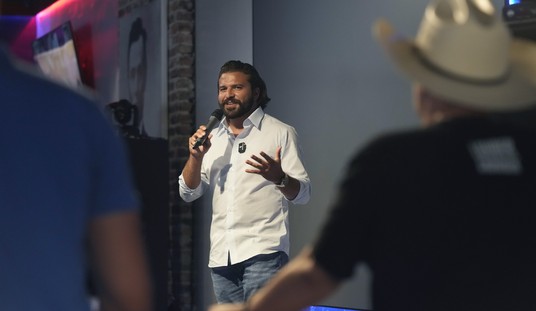
Join the conversation as a VIP Member